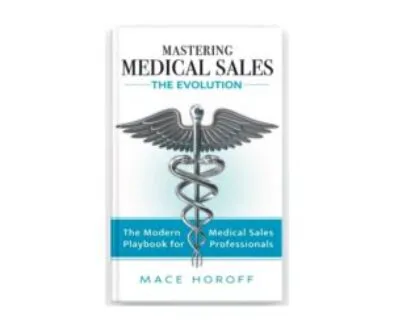In Healthcare, All Sales Presentation Opportunities Are Not Created Equal
How many times have you spotted one of your health care customers in the hallway of a hospital or clinic or at an industry meeting and thought, “I’m going to see if I can grab a few minutes of their time?” After all, it seems like any time you get to discuss your product or service is time well spent, right?
The answer is, it depends. If the product or service you wish to discuss is simple in terms of the problem it solves and the customer’s recognition of that problem has either been already expressed or another solution doesn’t exist, an impromptu sales presentation might work. The problem is that I often witness (and have been guilty myself) a sales representative trying to cram a sales presentation involving a complex issue into a can-I-show-you-something moment.
Let’s examine how a physician, for example, might think about a quick sales discussion involving a complex issue.
First, if the doctor does not perceive a problem to exist with his current product, his mind is not readily open to receiving information about an alternative. Unless he is able to quickly detect something that your product can do that his current product doesn’t do, or something that it can do better, he will likely disregard whatever you’re saying about your product…especially if you’re just showering him with features and benefits!
One of the key problems with giving an accidental sales presentation to a busy health care provider is that he or she will often say, “I just have a minute…what do you want to show me?” You have just received an order to hurry through whatever you want to say and to get to the point. Most sales reps won’t take the time for discovery by engaging the customer in a conversation. Knowing that they have “a minute,” they will often just vomit whatever they can think of about the product all over the customer and hope that something sticks. Unfortunately, what sticks is often misleading and counterproductive for you.
In the customers mind, even a short, quick sales presentation is still a sales presentation. They have seen your product and feel that whatever decision they made at that moment is the right one. Few health care customers will ever say in this situation, “Hey, why don’t you come by my office and spend half and hour with me so I can be sure that I’m making the right decision here.” They will just remember that they either decided to buy or not buy what you’re selling, but the bottom line, in their minds, is that they have looked at your product and made a decision.
We all know that health care providers are busy people. They don’t like to feel like they are wasting their time. Looking at the same product repeatedly seems like a waste of time. The take home message is that you may only have one opportunity to present your product to a busy health care customer. Knowing that, does it make sense to try and rush through the presentation while standing in a parking lot or hallway?
Medical sales professionals know that their closing rate goes up dramatically when their product is tied to a problem that the customer has indicated he or she would like fixed. This usually requires discussion to identify the needs and issues, demonstrating your product as a specific solution, time to handle objections, and effectively ask for commitment to move the sale forward. Can you do that effectively in a minute or two? Maybe you can on occasion, but truth be told, most of the time you can’t and trying to seize the moment and make it happen is just working against the sale.
So when you run into a health care customer, should you pass on the opportunity to make a sales pitch? Most of the time, yes! But don’t pass on the opportunity to schedule time to sit down and have a full discussion. Sell the appointment!
Remember, a potential customer is not interested in “looking at your product.” They are likely working with a product with which they are satisfied. You need to give them a reason to meet with you. Simply, that reason is to discuss ways for them to learn about something they would like to know, such as saving time, doing something more easily, or generating better outcomes for their patients. Ask for the appointment in specific terms of what they will receive by spending time with you, not by telling them what product you are going to show them.
It will take more effort to create the optimal environment and time frame for effective selling, but you will outsell those salespeople who take a shotgun approach and blast every prospect they encounter. Sell your customers on a reason to schedule time with you and then make them feel like it was a good use of their time whether they buy your product or not. You’ll find your sales increasing plus you’ll have an easier time scheduling time with those customers in the future.


